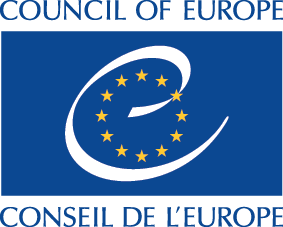Consultative members
Council of Europe
The Council of Europe is an international organization focused on promoting democracy, rule of law, human rights, economic development and integration of certain regulatory functions in Europe. Founded in 1949, it has 47 member states.
The work of the Council of Europe in higher education policy focuses on issues related to qualifications (qualifications frameworks, recognition), public responsibility for higher education and research, higher education governance and other fields relevant for the European Higher Education Area. The Council of Europe has contributed to the Bologna Process almost from its inception and is a consultative member of Bologna Follow-up Group (BFUG).
The Council of Europe’s contributions to the Bologna Process include:
- Providing, with UNESCO, the only legally binding text of the Bologna Process: the Lisbon Recognition Convention;
- Development of recognition policy and practice through the ENIC and NARIC Networks, with UNESCO and the European Commission;
- Membership of several BFUG Working Groups;
- Work on the public responsibility for higher education and research; leading to a policy recommendation by the Committee of Ministers
 ;
; - Work on higher education governance;
- A particular responsibility, within the Bologna Process, for working with countries that have joined the Process in 2003 or later;
- Publication of the Council of Europe Higher Education Series; in which most volumes are relevant to the Bologna Process.
Publications of the Higher Education and Research Division
The Council of Europe Higher Education Series, launched in 2004, aims to explore higher education issues of concern to policy makers in Ministries, higher education institutions and non-governmental organizations, and student representatives. Beyond that, the books will be of interest to all those interested in the development and future of higher education in Europe.
Council of Europe Higher Education Series - Volume 11
Edited by Sjuyr Bergan and Jean-Philippe Restoueix, Intercultural dialogue on Campus is the Volume 11 of the Council of Europe higher education series, published in 2009.
Modern societies are inconceivable as isolated and mono-cultural entities. The interaction of various cultures is not only a fact of life for most Europeans, it also enriches our societies. However, we also witness tensions between cultures. Intercultural dialogue is therefore one of the political priorities of the Council of Europe, as shown most prominently by the adoption of the White Paper "Living Together as Equals in Dignity" in May 2008.
Higher education, by its history and contemporary practice, is a natural partner in and promoter of intercultural dia¬logue and understanding. Higher education institutions and campuses are themselves multicultural societies, and as such are the focus of the present volume. A second volume (Speaking across borders – volume 16 of the Council of Europe Higher Education Series) examine the role of higher education in furthering intercultural dialogue and understanding in broader society.
Council of Europe Higher Education Series - Volume 15
Edited by Sjur Bergan and Radu Damian, Higher education for modern societies: competences and values brings together contributions from authors from both Europe and North America exploring the roles and purposes of higher education in modern, complex societies and the importance of competences in this respect.
Developing learners' competence is an important part of the mission of higher education. The kind of competences that higher education should develop depend on what we see as the purposes of higher education. The term "converging competences" points to the need not only to train individuals for specific tasks, but to educate the whole person. Education is about acquiring skills, but also about acquiring values and attitudes and learning outcomes have come to be seen as an essential feature of education policies.
Council of Europe Higher Education Series - Volume 16
Edited by Hilligje van’t Land of the IAU (International Association of Universities) and Sjur Bergan of the Council of Europe, Speaking across borders – volume 16 of the Council of Europe Higher Education Series - explores the role of higher education in developing intercultural dialogue in our societies. It complements Intercultural dialogue on Campus (Higher Education series No. 11) and the issue of the IAU journal Higher Education Policy (HEP, vol. 18.4) on the same topic and includes contributions from Europe, the Middle East, Africa, Asia and North America. The book demonstrates that education will need to play a key role in developing the ability to conduct intercultural dialogue, which is an integral part of democratic culture. It sets out the political context for intercultural dialogue, explores how universities can become actors of intercultural dialogue and offers examples of good practice from various parts of the world.
IAU journal Higher Education Policy (HEP, vol. 18.4
Council of Europe Higher Education Series - Volume 17
The Council of Europe Higher Education Series volume 17 - Entitled Not by Bread Alone - brings together a series of essays by Sjur Bergan, Head of the Council of Europe’s higher education programme, covering the missions of higher education, reflections on public responsibility for higher education and issues concerning qualifications and recognition.
Recommandations
Public Responsibility for Academic Freedom and Institutional Autonomy
On June 20, the CoE Committee of Ministers adopted Recommendation CM/Rec(2012)7 on the Public Responsibility on Academic Freedom and Institutional Autonomy. While several international texts address issues of academic freedom and institutional autonomy, this recommendation is – to our knowledge – the first to do so explicitly with a view to the role of public authorities. The provisions of the recommendation are also considered in an Explanatory memorandum.
Quality Education
On December 12, the Committee of Ministers of the Council of Europe adopted Recommendation Rec (2012)13 on ensuring quality education. The Recommendation and its Explanatory Memorandum outline the Council of Europe’s understanding of quality education, link the concept to the multiple purposes of education and consider the roles and responsibilities of public authorities for ensuring quality education at various levels of education. The texts were prepared by the Steering Committee for Educational Policy and Practice (CDPPE).



